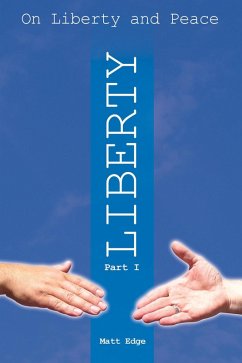The author writes:In this project I set out to provide an answer to two fundamental questions of political philosophy. How can human beings (living, as we do now, in a globalised world) live together, in conditions of co-operation over time, enjoying what Immanuel Kant famously called 'perpetual peace'? And how much individual freedom can we expect to enjoy, and to what degree can we expect that individual freedom to be equal, whilst engaged in the enterprise described by the first question? These may be age-old questions, but I aim, in this project, to offer a new approach to answering them.In part one of this project, I aim to provide a groundwork upon which an answer to these questions can be built. I argue, contrary to much contemporary (and historical) political philosophy, that the answers to these questions should not be provided by our representatives, a monarch, the elite, or by a process of philosophical abstraction (or anything else) but, instead, by each of us. That is to say, by you, me and everyone else together. Part one argues not only why it should be each of us who are to be engaged in this enterprise, but it also argues on behalf of a number of changes which might support us in this ongoing, and doubtless difficult, human project. I begin by arguing that, if we are to attempt to provide a genuine (and free) answer to how much individual freedom we should each be alloted in human society over time, this means that we must begin with the concept of freedom itself which, in turn, means detaching it from the philosophical and epistemological baggage it tends to carry in everyday language.
Dieser Download kann aus rechtlichen Gründen nur mit Rechnungsadresse in A, B, BG, CY, CZ, D, DK, EW, E, FIN, F, GR, HR, H, IRL, I, LT, L, LR, M, NL, PL, P, R, S, SLO, SK ausgeliefert werden.


